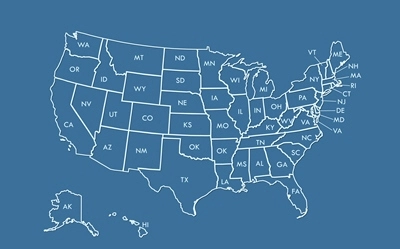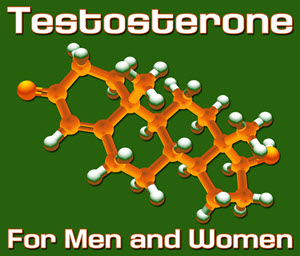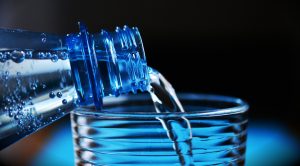 I’m all for drinking water. Everyone needs – preferably pure – water every day. But the old advice about drinking eight glasses a day isn’t necessarily true. For some people, that would be an appropriate quantity, especially if you’re exerting yourself or spending a lot of time in the sun. Other people can do just fine on half that amount. Many doctors today advise drinking primarily when you’re thirsty. And it’s very good advice, when you do get thirsty, to avoid caffeinated or sweetened or sugared beverages – and don’t forget that caffeine can actually dehydrate you, so those kinds of drinks will often have exactly the opposite effect from what you intend. Pure water is best.
I’m all for drinking water. Everyone needs – preferably pure – water every day. But the old advice about drinking eight glasses a day isn’t necessarily true. For some people, that would be an appropriate quantity, especially if you’re exerting yourself or spending a lot of time in the sun. Other people can do just fine on half that amount. Many doctors today advise drinking primarily when you’re thirsty. And it’s very good advice, when you do get thirsty, to avoid caffeinated or sweetened or sugared beverages – and don’t forget that caffeine can actually dehydrate you, so those kinds of drinks will often have exactly the opposite effect from what you intend. Pure water is best.
The main thing, though, is to make sure that you get a good supply of electrolytes in your diet – if you don’t do that, your cells will be unable to absorb the water that you drink, and you might as well not have drunk it. Ignoring electrolytes is a serious mistake.
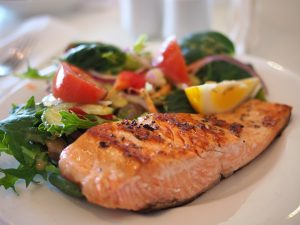 Luckily, it’s pleasant and easy to get plenty of electrolytes in your daily meals.
Luckily, it’s pleasant and easy to get plenty of electrolytes in your daily meals.
Electrolytes are Key
What exactly is an electrolyte? It may sound like something you can get an electric shock from, but you don’t need to worry about that. Electrolytes do carry small electric charges, though – they are minerals which carry a small charge. And it is these small electric charges which open pathways in our cells that allow the water we drink to replenish our cells with water – also called hydrating the cells. The latest research shows that there are some 30 trillion cells in our bodies – 300 times more than the number of stars in the Milky Way galaxy. That’s a very large number of living cells – each one of which needs to have its water replenished every few days at a very minimum to sustain life, and preferably many times every day. A lack of such water replenishment is called dehydration, and it can quickly lead to irritability, disorientation, and fatigue – and eventually death.
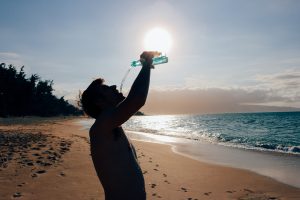 If our electrolytes are sufficiently low, it doesn’t matter how much water we drink, it won’t get into our cells and we will be dehydrated. Some other symptoms caused by an electrolyte imbalance include: muscle weakness, cramping, fast or irregular heartbeat, numbness, lethargy, and seizures. It’s a sign of serious body dysfunction. As I said earlier, don’t go crazy with the water drinking – let your thirst and activity level be your guide – too much water consumption can, paradoxically, flush electrolytes out of your system and make the water impossible for your cells to access.
If our electrolytes are sufficiently low, it doesn’t matter how much water we drink, it won’t get into our cells and we will be dehydrated. Some other symptoms caused by an electrolyte imbalance include: muscle weakness, cramping, fast or irregular heartbeat, numbness, lethargy, and seizures. It’s a sign of serious body dysfunction. As I said earlier, don’t go crazy with the water drinking – let your thirst and activity level be your guide – too much water consumption can, paradoxically, flush electrolytes out of your system and make the water impossible for your cells to access.
Get Your Electrolytes from Natural Food
 Here are the electrolytes we need: sodium, calcium, potassium, chloride, phosphate, and magnesium --- and although you can buy supplements for these and they will work, it’s best to just get them in healthy, unprocessed foods, preferably organic. And here are some excellent food sources that you should be eating regularly (along with quenching your thirst with plenty of refreshing, pure water) for that purpose: olives, raisins, most canned foods, spinach, kale, avocados, broccoli, potatoes, beans, almonds, peanuts, soybeans, tofu, strawberries, watermelon (hey, the water’s built into that one!), oranges, bananas, and tomatoes! Enjoy.
Here are the electrolytes we need: sodium, calcium, potassium, chloride, phosphate, and magnesium --- and although you can buy supplements for these and they will work, it’s best to just get them in healthy, unprocessed foods, preferably organic. And here are some excellent food sources that you should be eating regularly (along with quenching your thirst with plenty of refreshing, pure water) for that purpose: olives, raisins, most canned foods, spinach, kale, avocados, broccoli, potatoes, beans, almonds, peanuts, soybeans, tofu, strawberries, watermelon (hey, the water’s built into that one!), oranges, bananas, and tomatoes! Enjoy.
Contact Us Today For A Free Consultation
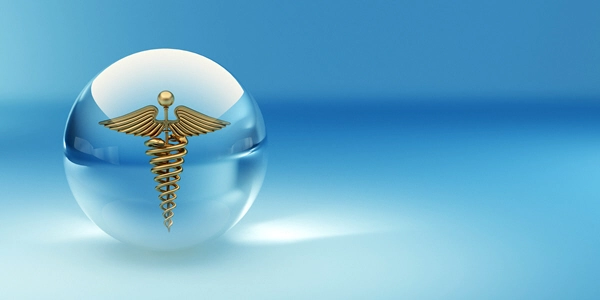
- Weight Loss Cure - Metabolic Cookbook - Video [Last Updated On: January 25th, 2024] [Originally Added On: July 12th, 2013]
- Qualigen Receives FDA Clearance for Its FastPack® Vitamin D Immunoassay [Last Updated On: January 25th, 2024] [Originally Added On: July 16th, 2013]
- How Julia Montes lost weight [Last Updated On: January 25th, 2024] [Originally Added On: October 4th, 2013]
- Home - Dr. Jenyons Medical Weight Loss and Rejuvenation Center [Last Updated On: January 25th, 2024] [Originally Added On: December 8th, 2013]
- Dieters Beware: Weight Loss Products May Use Deceptive Marketing [Last Updated On: January 25th, 2024] [Originally Added On: January 8th, 2014]
- FTC Announces $34 Million in Settlements with Companies Over Bogus Weight-Loss Products [Last Updated On: January 25th, 2024] [Originally Added On: January 9th, 2014]
- The Point of P3 : #3 Food Sensitivities Discovered to Help Weight Maintenance - Video [Last Updated On: January 25th, 2024] [Originally Added On: May 19th, 2014]
- The Weight Loss Black List; Twelve Dangerous Weight Loss Ingredients [Last Updated On: January 25th, 2024] [Originally Added On: May 31st, 2014]
- Getting a degree in dieting [Last Updated On: January 25th, 2024] [Originally Added On: June 10th, 2014]
- Eat your way to a hot body [Last Updated On: January 25th, 2024] [Originally Added On: June 21st, 2014]
- 7 Fad Diets You Shouldn't Try [Last Updated On: January 25th, 2024] [Originally Added On: July 19th, 2014]
- Try the cookie diet? [Last Updated On: January 25th, 2024] [Originally Added On: July 25th, 2014]
- 14 Fad Diets You Shouldnt Try [Last Updated On: January 25th, 2024] [Originally Added On: July 26th, 2014]
- B12 Injection Therapy as Part of Hormone Replacement Therapy - Video [Last Updated On: January 25th, 2024] [Originally Added On: August 12th, 2014]
- FTC continues cracking down on weight loss scams [Last Updated On: January 25th, 2024] [Originally Added On: December 13th, 2014]
- Micronutrients: The Gateway to Cellular Health Function 101 [Last Updated On: March 1st, 2024] [Originally Added On: June 24th, 2020]
- Could a Revolutionary Weight Loss Strategy Be on the Horizon? [Last Updated On: February 24th, 2024] [Originally Added On: August 19th, 2020]
- Controlling Testosterone Levels Through Diet [Last Updated On: February 12th, 2024] [Originally Added On: October 12th, 2020]
- Selecting the Ideal Intermittent Fasting Protocol [Last Updated On: January 25th, 2024] [Originally Added On: October 20th, 2020]
- Limiting the Influence of Estrogen on Male Hormone Balance Through Diet [Last Updated On: January 25th, 2024] [Originally Added On: December 31st, 2020]
- Vitamin D and Sunlight for Mood and Hormone Balance [Last Updated On: January 25th, 2024] [Originally Added On: February 22nd, 2021]
- Testosterone-Boosting Foods: Nutrition for a Man [Last Updated On: September 18th, 2024] [Originally Added On: March 24th, 2021]
- Boost Your Testosterone With a Low-Calorie, Ketogenic-Focused Diet [Last Updated On: August 30th, 2024] [Originally Added On: June 1st, 2021]
- The Standard American Diet is Linked to Poor Testicular Function [Last Updated On: August 23rd, 2024] [Originally Added On: June 8th, 2021]
- A High-Protein Diet – Good for Testosterone Levels or Not? [Last Updated On: September 3rd, 2024] [Originally Added On: March 29th, 2022]
- Inflammatory Foods Linked to Low Testosterone [Last Updated On: September 5th, 2024] [Originally Added On: July 18th, 2022]
- Vitamins and Nutrients that Keep Hair Healthy and Vibrant [Last Updated On: August 11th, 2024] [Originally Added On: November 23rd, 2022]
- Are You a “Soy Boy”? [Last Updated On: December 3rd, 2023] [Originally Added On: February 10th, 2023]
- Finding the Origin of Prostate Cancer to Stop Cancer Before it Starts [Last Updated On: October 25th, 2024] [Originally Added On: February 13th, 2023]
- How to burn calories while walking. [Last Updated On: February 20th, 2024] [Originally Added On: June 27th, 2023]
Word Count: 554






